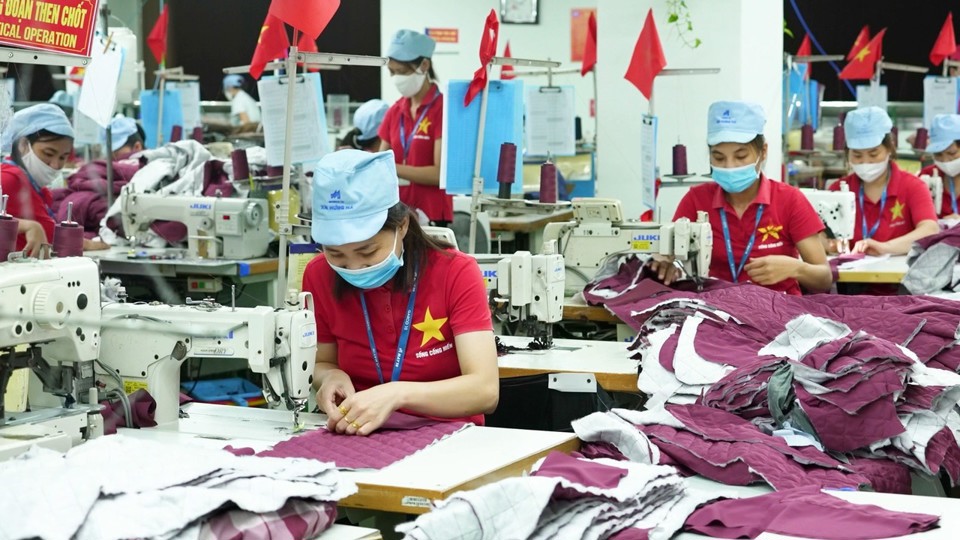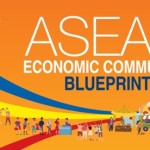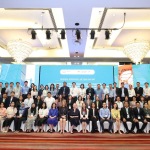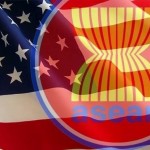Total number of posts 463.
After 3 years of implementation, the Vietnam-EU Free Trade Agreement (EVFTA) has become a push to bring Vietnamese goods into the EU. In order to export sustainably to this market, businesses are making efforts to apply high-standard technology in parallel with green production transformation.
Outstanding growth
The results after 3 years of EVFTA implementation are proof that Vietnam-EU trade growth has become a reality. The assessment report of the Ministry of Industry and Trade shows that, with the complementary structure of goods, advantages from EVFTA implementation have helped two-way trade in general and Vietnam's exports to the EU in particular grow impressively.
In particular, many key export products of Vietnam recorded very positive growth such as textiles and garments, footwear, seafood, agricultural products... the utilization rate of preferential C/O (certificate of origin) is continuously increasing.

The textile and garment industry is transforming green, meeting EU market standard
With new-generation free trade agreements such as EVFTA, the biggest contribution is to help Vietnam's economy exploit competitive advantages. This is most evident in figures such as the outstanding growth of many agricultural products exported to the EU.
Besides traditional items such as coffee, cashews, pepper, wood, seafood... Over the past time, EVFTA has helped Vietnam exploit more advantages in rice products, helping exports grow 2-3 times higher than before. Vegetables and fruits also grew significantly with turnover in 2022 reaching 200 million USD, making Vietnam the 59th exporter of vegetables and fruits to the EU in the world.
Notably, EVFTA is also a push to help the manufacturing industry change. Enterprises in the region and purchasing facilities must change production and business methods to improve quality. In the long run, this is an important factor for Vietnam's key industry, not just exports. The change in production helps bring sustainable value to exports and contributes to building the brand for Vietnamese exports.
However, according to Deputy Director of the Multilateral Trade Policy Department (Ministry of Industry and Trade) Ngo Chung Khanh, from the 3rd year in the EVFTA implementation roadmap, these advantages and results have been somewhat affected by the EU applying more high standards. Especially, increasing quality requirements, especially in the field of environment, sustainable development... with imported goods collectively referred to as "green standards".
Businesses adapt to new rules of the game
Many experts said that in the current context, green transformation is no longer a voluntary requirement but has become a new rule of the game, a mandatory condition for products if they want to participate in the market. Therefore, in order to export sustainably, meeting the standards of the EU market, experts said that solutions to accelerate green transformation for businesses are needed if they do not want to be excluded from the value chain.
On the other hand, adapting to new challenges not only maintains competitiveness but will open the door for businesses to increase exports and reduce market risks.
In this regard, Director of the Center for WTO and Integration (Vietnam Federation of Trade and Industry) Nguyen Thi Thu Trang said that Vietnamese goods exported to the EU not only require high quality but also must be associated with social, environmental and sustainable development standards. In addition to previous standards on traceability, businesses should also pay attention to newer EU standards on combating deforestation and regulations on carbon tax.
In fact, many Vietnamese industries have been implementing greening to meet many EU regulations. For example, Vietnam Textile and Garment Group (Vinatex) is focusing on researching green production technology solutions; develop new products using green and recycled materials.
Vinatex General Director Cao Huu Hieu shared: "Vinatex with the Group model consists of many member units focusing on solutions to maximize overall strength, restructure to respond more flexibly to market trends and improve its position in the global textile and garment supply chain".
Talking about solutions to accompany and support businesses, Minister of Industry and Trade Nguyen Hong Dien informed that the Ministry of Industry and Trade regularly and promptly closely monitors developments of the world economy, especially policy adjustments of the EU market to promptly issue warnings to businesses and advise the Government to have appropriate policy responses.
At the same time, the Ministry also strengthened and renewed trade promotion towards the potential EU market; propagating, disseminating and supporting enterprises to exploit strengths and incentives in EVFTA to boost exports.














